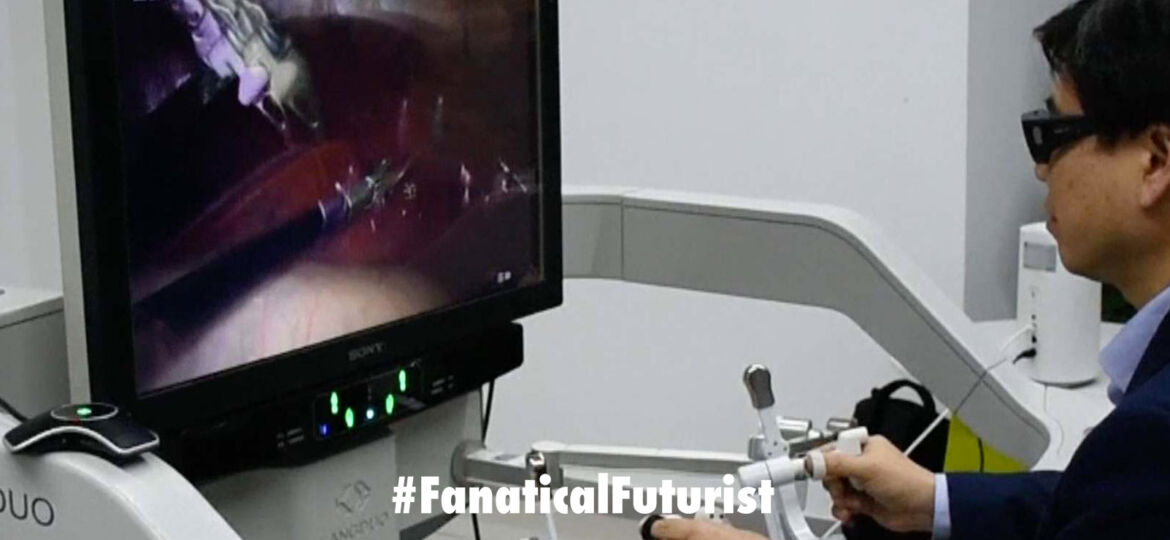
WHY THIS MATTERS IN BRIEF
Globally there is a shortage of trained surgeons, but robo-surgeons and 5G networks could soon solve that.
Recently dentists in China used the first autonomous robot dentist to replace a patients teeth, and the US Military started trialling what they call “remote robotic procedures” that would allow American surgeons to operate on injured soldiers in the battlefields around the world without ever having set foot out of the US. Now, in a world first, a surgeon in China has become the first person to perform a remote control robot surgery over a super-fast 5G network, and the surgeon, who performed the surgery by remotely manipulating two robotic arms, was 30 miles from an operating theatre in Fujian province.
During the procedure, an overview of which you can see in the video, he removed an animal’s liver, the South China Morning Post reported. The 5G system, which is said to be at least 10 times as fast as current 4G networks, and perhaps even up to a hundred times, only had a lag time of 0.1 seconds which meant that the delay between the surgeon’s movements and the robot in the theatre was short enough to avoid any potentially disastrous mistakes.
In the future it’s hoped such technology will enable surgeons to work remotely in everything from war zones and disaster areas as well as allowing specialists from large hospitals to assist more junior colleagues elsewhere in the world.
The fifth generation system the surgeon used is described by experts as a “trend setting technology which will play an important role in future surgery”, said Dr Michael Kranzfelder from Rechts der Isar Hospital in Germany at last year’s German Society of Surgery, and he also said the technologies involved would “open up many new areas of application for which the previous mobile data transmission 4G standard was simply not fast enough to manage.”
Mobile phone companies around the world are slowly starting to roll out 5G networks, even as 6G networks which will operate at terabyte, not gigabyte, speeds start hitting the drawing board, which means that the opportunity to deliver medical treatments, such as robotic surgeries, could become common practice in the future.
















[…] the world’s first robot dentist, that implanted to replacement teeth in a patients jaw, and the world’s first remote robot surgery over a superfast 5G network where doctors removed the liver of a lab animal 30 miles […]
[…] robo-surgeons sound rather far-fetched, worry not and meet the first doctor that performed robotic surgery across a 5G network. The Chinese surgeon remotely controlled a pair of robotic arms to remove the […]
[…] robo-surgeons sound rather far-fetched, worry not and meet the first doctor that performed robotic surgery across a 5G network. The Chinese surgeon remotely controlled a pair of robotic arms to remove the […]